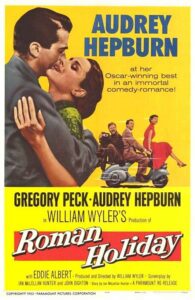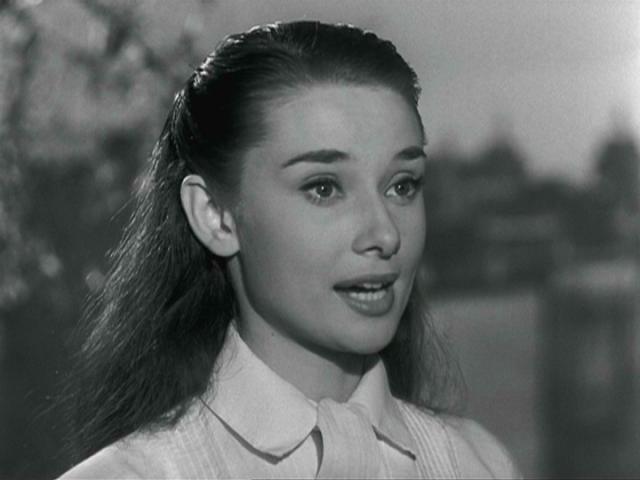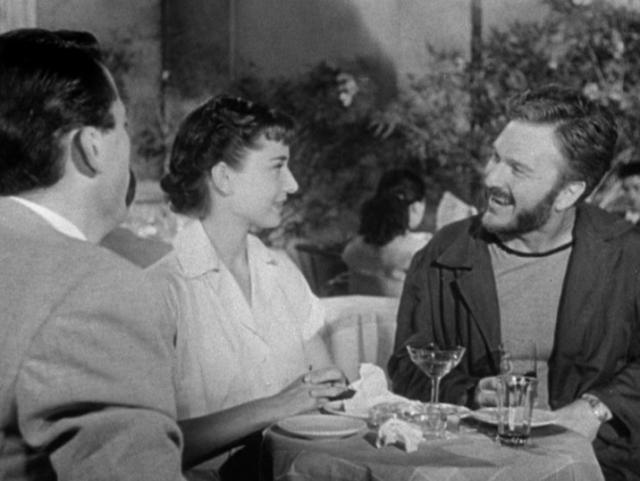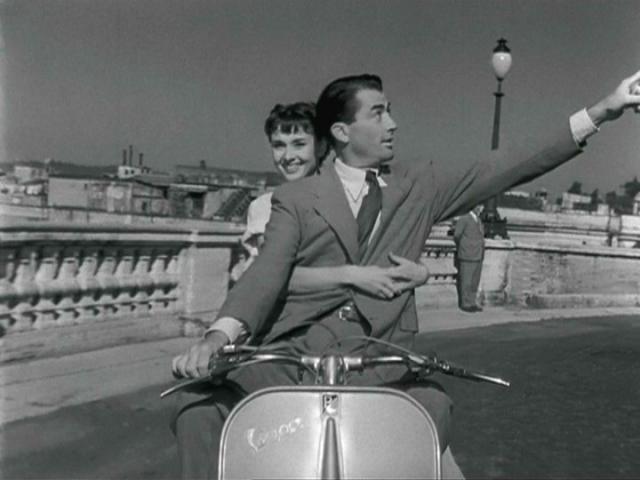Roman Holiday (1953)
“She’s fair game, Joe. It’s always open season on princesses.”
|
Synopsis: |
|
Genres, Themes, Actors, and Directors:
Review: Such quibbles must ultimately be left aside, however, given that Hepburn is so luminous and appealing it’s difficult to turn our eyes away from her. (No wonder a generation of young woman wanted to BE her!) From the moment we first see her Princess Ann waiting to greet an endless line of well-wishers, trying to get more comfortable by discretely slipping a foot out of its high-heeled slipper, she can’t help winning our hearts — therefore, we’re genuinely thrilled for her as she explores the streets of Rome, experiencing such simple pleasures as getting a short haircut, eating an ice cream cone on the Spanish Steps, and being “offered” a bouquet of flowers by a vendor. While Hepburn’s the undeniable star here, Peck is nicely cast as the journalist who can’t help falling for his “subject”, and Eddie Albert is excellent as his photographer buddy. Meanwhile, the streets and sites of Rome are a spectacle unto themselves, making this film a bit of a “Roman holiday” for viewers as well. Note: As pointed out by DVD Savant, the story is surprisingly free of any kind of an overt social “message”, given that it was scripted by blacklisted Dalton Trumbo (whose ghostwriter, Ian McClellan Hunter, won an Oscar on his behalf). Redeeming Qualities and Moments:
Must See? Categories
(Listed in 1001 Movies You Must See Before You Die) Links: |





One thought on “Roman Holiday (1953)”
A once-must, for its place in cinema history.
I’ll admit this isn’t a personal favorite of mine, among classics, but it’s too iconic for ffs to not see. Yes, Hepburn did instantly charm the world in a role designed to do just that – which, I suppose, is what got her the Oscar (though her competition that year wasn’t all that tough). But it’s not like it’s a particularly challenging role, if you think about it. For the most part, Hepburn is called on to be…Audrey Hepburn. There’s not a whole lot of depth here.
But then, that falls in line with the entire film – which is simple entertainment, an unlikely love story, placed in its wonderful Roman setting.
My main reason for not being all that fond of it has nothing to do with its unbridled romanticism – which is actually fine. I just find the film a little thin – on a first viewing, you’re going to get out of it what’s there. So, for me, it’s more or less the equivalent of a date movie.
That said, I do admit to a fondness for the finale – when Hepburn makes a statement that surprises everyone. It’s a nice touch.
Note: When I moved to Japan, I was told that this film was beloved there since the Japanese seem to have a particular understanding of thwarted love (at least, traditionally).